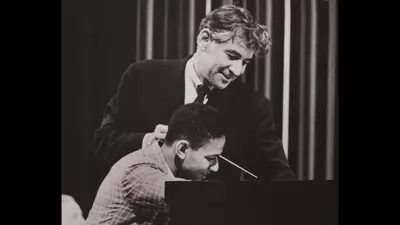How to Incorporate Storytelling into Movies
Unlock Movie Magic ??! Learn How to Weave Captivating Stories into Films ??. Transform Your Movies Today! Discover the Power of Storytelling

Discussing the Importance of Storytelling in Movies
Storytelling is an ancient art that has been an integral part of human culture for millennia. It has been used to entertain, educate, and share experiences, emotions, and ideas. In the world of cinema, storytelling plays a pivotal role, serving as the foundation upon which movies are built. This essay explores the significance of storytelling in movies, delving into its various aspects and its impact on both filmmakers and audiences.
Engagement and Emotional Connection
At the heart of every great movie lies a compelling story that captivates the audience. Storytelling in movies is the key to engaging viewers emotionally. Through well-developed characters, plotlines, and dialogues, filmmakers can elicit a range of emotions from their audience, including joy, sadness, fear, and empathy. A well-told story can transport the audience to different worlds, making them feel like active participants in the narrative.
Conveying Messages and Themes
Movies often serve as a medium through which filmmakers can convey important messages and themes. Storytelling allows them to explore complex ideas, social issues, and moral dilemmas in a way that resonates with the audience. Through metaphor and allegory, filmmakers can shed light on subjects that might otherwise be challenging to address directly.
Character Development
Storytelling is instrumental in character development. It provides the framework for characters to evolve throughout the course of a movie. The audience becomes emotionally invested in the characters' journeys, watching them grow, change, and confront their own flaws and fears. This evolution makes characters relatable and helps the audience connect with them on a personal level.
Suspense and Engagement
Effective storytelling creates suspense and keeps the audience engaged. A well-crafted plot with unexpected twists and turns can hold the viewer's attention and keep them guessing. This element of surprise adds depth and excitement to the movie-watching experience.
Cultural and Historical Preservation
Storytelling in movies also serves as a means of cultural and historical preservation. Filmmakers can use the medium to depict historical events, traditions, and customs, preserving them for future generations. Additionally, storytelling in movies can shed light on the cultural diversity of the world, fostering cross-cultural understanding and appreciation.
Innovation and Creativity
Filmmakers continually push the boundaries of storytelling, experimenting with narrative structures, visual effects, and storytelling techniques. This innovation and creativity contribute to the evolution of the art of filmmaking. Storytelling serves as a canvas for filmmakers to express their unique visions and experiment with new ideas.
Audience Connection and Empathy
Storytelling fosters a strong connection between the audience and the characters on screen. It allows viewers to step into the shoes of the characters, experience their joys and sorrows, and develop empathy. This connection can lead to profound emotional experiences and a deeper understanding of the human condition.
Box Office Success
Movies with compelling stories often perform well at the box office. Audiences are more likely to recommend films with engaging narratives to others, leading to word-of-mouth marketing. Additionally, strong storytelling can lead to critical acclaim, awards, and long-lasting popularity.
Education and Learning
Movies can be powerful tools for education and learning. They can bring historical events to life, teach important lessons, and inspire viewers to explore new subjects. Educational storytelling in movies can be particularly influential in shaping the perspectives and values of young audiences.
Moreover, storytelling is not limited to any one genre or style of filmmaking. It is as crucial in a heartwarming family drama as it is in an action-packed blockbuster or a thought-provoking documentary. Whether a filmmaker aims to make the audience laugh, cry, reflect, or simply escape into a different world, storytelling remains at the core of their creative endeavor.
Challenges and Responsibilities of Storytelling in Movies
While the importance of storytelling in movies is undeniable, it also comes with its set of challenges and responsibilities. Filmmakers must strike a balance between entertaining their audience and conveying their intended message. They must ensure that their stories are authentic, respectful, and socially responsible. Misrepresenting characters, cultures, or historical events can lead to backlash and criticism.
Additionally, with the ever-evolving landscape of technology and viewer preferences, filmmakers must adapt their storytelling techniques to keep their work relevant. The rise of streaming platforms, virtual reality, and interactive storytelling poses both opportunities and challenges for the traditional linear narrative structure of filmmaking.
The Impact on Filmmakers and Audiences
For filmmakers, mastering the art of storytelling is a lifelong journey. They must continually hone their skills, stay attuned to cultural shifts, and be open to experimentation. Great directors like Steven Spielberg, Martin Scorsese, and Quentin Tarantino are celebrated not only for their technical prowess but also for their storytelling prowess.
In conclusion, storytelling is the lifeblood of the movie industry. It is the foundation upon which all other elements of filmmaking are built. Through storytelling, filmmakers can engage audiences emotionally, convey important messages, develop characters, create suspense, preserve culture and history, foster creativity, connect with viewers, achieve box office success, and educate. The importance of storytelling in movies cannot be overstated, as it is what transforms a mere sequence of images into a powerful and unforgettable cinematic experience.
What's Your Reaction?















